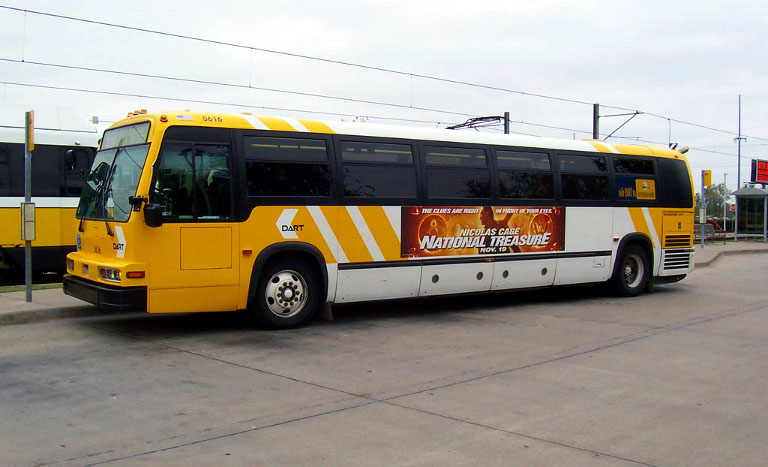There’s bad news, and then there’s worse news. According to a new study called the Arcadis Sustainable Cities Mobility Index, the United States doesn’t have very good public transit. The study, which ranks cities based on their transit infrastructure and investment, access to multiple transit modes, active commuting, bicycle infrastructure, commuting travel time, affordability, and other factors, found that no U.S. or Canadian cities break the top 20 of the list.
That’s the bad news. The worse news is that Dallas is one of the worst cities for transit on a continent that, overall, doesn’t do transit very well. Dallas ranked 18th among the 23 U.S. cities that were analyzed. Only Detroit, Tampa, Houston, and Indianapolis are worse. Why is Dallas’ system so bad? Well, the usual reasons:
Dallas does not score well for bicycle infrastructure and is in the bottom 20 cities globally for traffic fatalities. The DART system shuts down around midnight rather than going 24 hours. While planning is in the works, system expansion is in early stages. Dallas has a very low per capita usage rate for public transit.
Even the strengths of DART’s system cited in the study are double-edged swords. For example, the study compliments DART’s various digital and mobile transit tools that help riders “make smooth transit trips,” though frequent users of those tools know that they often are useful only in letting you know how many long transfers you’ll have to suffer through to get to your destination. The study also compliments DART’s accessibility for wheelchairs, which is something to be proud of. But frequent riders of bus routes like the 11, which runs down Jefferson Blvd, know that accessibility to wheelchairs plus too-frequent transit stops means it takes an extraordinary amount of time to travel just a few blocks.
That said, the study also says that commute times are not as bad as many other cities, which anyone who has ever suffered a long, late night L train into the hinterlands of Brooklyn can attest to. But as the recent UTA transit study pointed out, it is not just that DART’s commute times are long, but that the DART system doesn’t provide access to many of the region’s jobs. At least if you are stuck on a long subway ride, you know it is taking you somewhere you want to go. This new study also found that DART is relatively affordable, something that recent UTA transit study also pointed out. Unfortunately, the UTA study found that, overall, Dallas residents and DART-dependent residents pay too much for transportation.
But wait — careful readers may throw up an objection and point out that Houston’s public transit system is also garbage according to this study. Isn’t Houston the city that went to the grid-ed bus system that transit advocates in Dallas now trumpet as the Holy Grail of fixing Dallas’ ill-conceived system? The message here is that there isn’t a single bullet fix to Dallas’ public transit woes. Yes, a grid-style, more efficient bus system will help, but not without looking at other short and long-term issues. Or, in the jargon-ese of the study:
North American cities will have to overcome the negative public perception of public transit and alternative modes of transportation by incentivizing usage and working with companies and developers to encourage ridership. Using technology is also critical to the adoption of public transit by streamlining the user experience and making commutes convenient. Further, cities should work collaboratively across agencies, businesses, and investors to implement sustainable mobility solutions.
You can read the whole report here, and click through a nifty interactive graphic that compares global cities’ transit networks here. Oh, and if you want to live in a city with good transit, you should move to Hong Kong, Zurich, Paris, Seoul, Prague, Vienna, London, Stockholm, Singapore, or Frankfurt.






